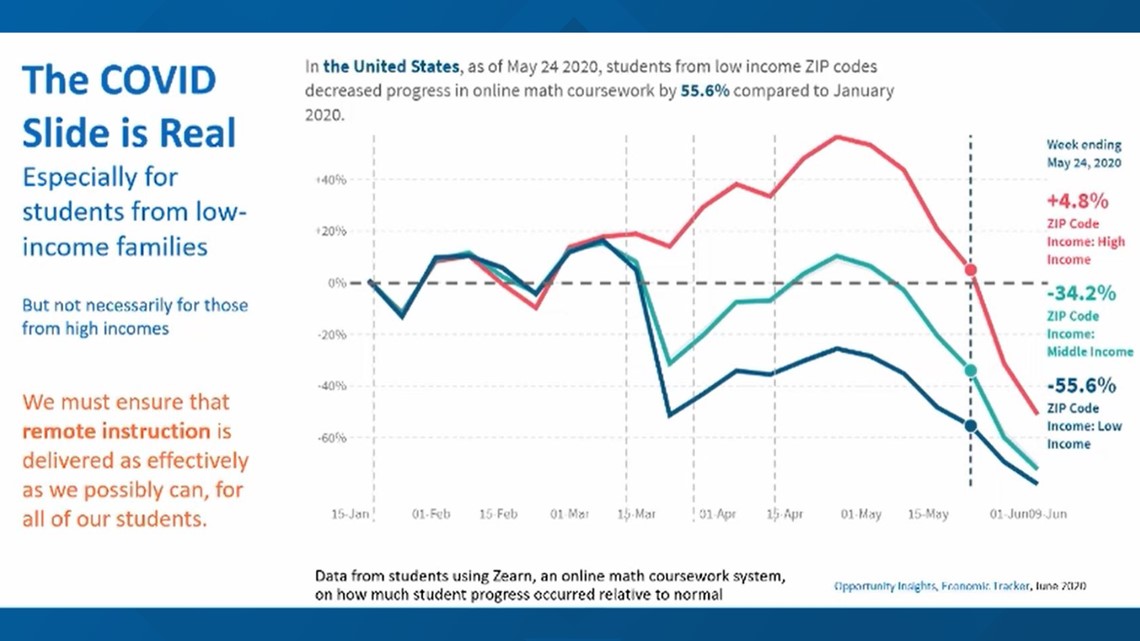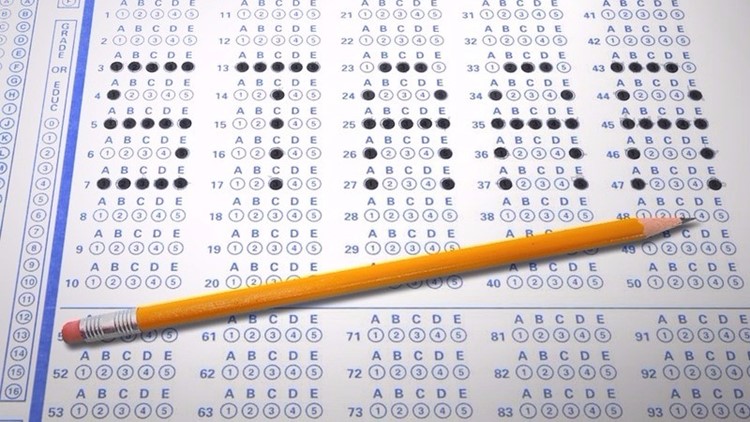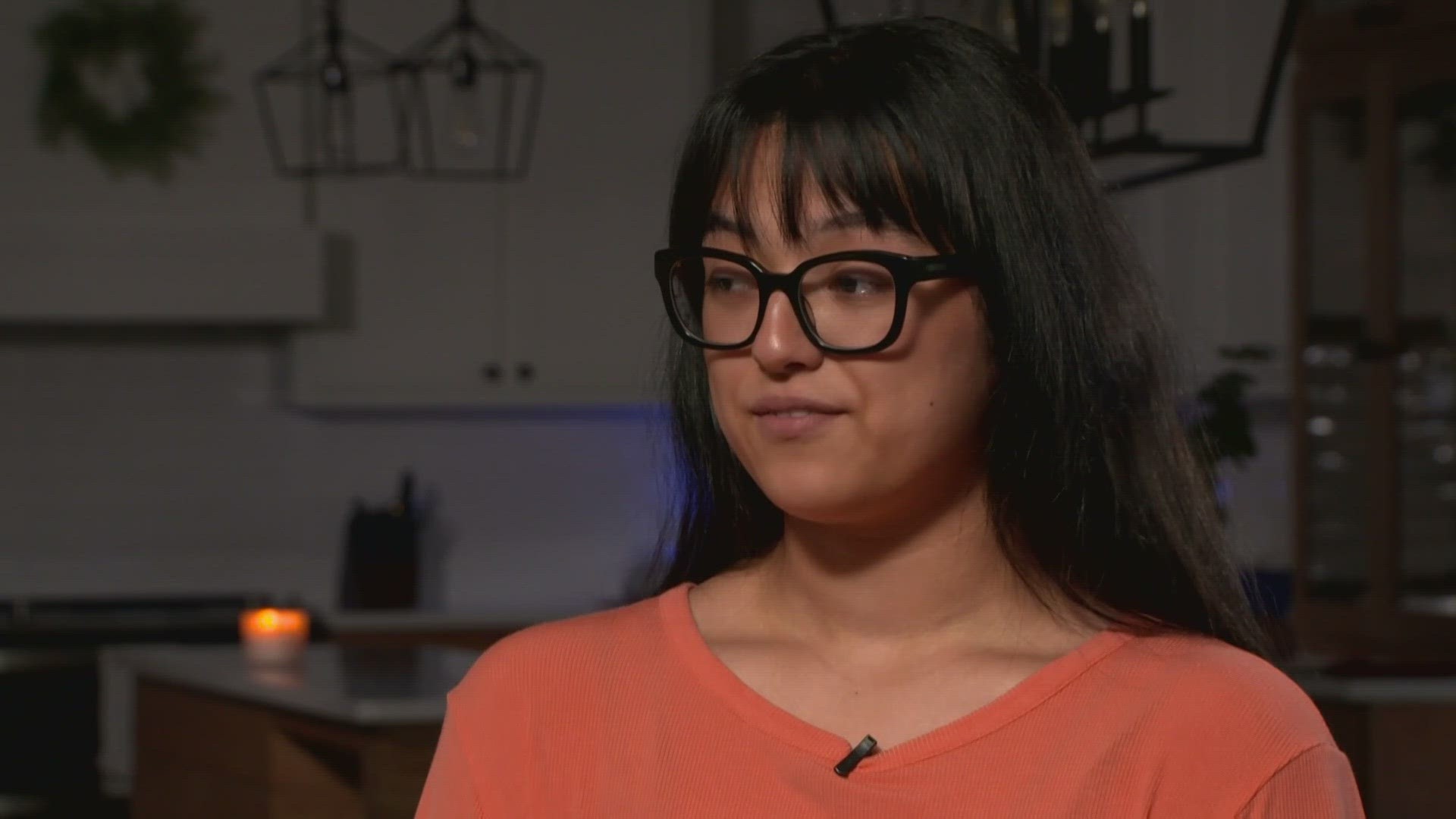The pandemic has upended many traditions, but Texas students are currently still expected to take the state assessment, STAAR. Texas House representatives sent a bipartisan letter Wednesday to the Texas Education Agency, asking to cancel the STAAR test for this academic year due to the pandemic.
The letter to TEA Commissioner Mike Morath was signed by 68 representatives, including nine who represent districts in North Texas, which cover Dallas, Fort Worth, Arlington, Grand Prairie and Garland.
End-of-course STAAR tests are slated for December for certain subjects. The concern is data shows students are experiencing "COVID slide," a learning loss, and are still hurting from the digital divide as education increasingly relies on technology.
"Our students, educators and their families can’t afford the distraction of STAAR as they struggle to stay safe and continue to adjust to new methods of teaching and learning," said Ovidia Molina, president of the Texas State Teachers Association, in a statement Wednesday.
The superintendent of Lewisville ISD asked the TEA in a letter on Nov. 2 to suspend STAAR testing in December.
The House representatives request that the TEA seek necessary waivers from the U.S. Department of Education for federal testing and accountability requirements to cancel the test administration.
The test should be used, at most, to serve as a diagnostic tool for students' standings, rather than an assessment to determine district and campus sanctions under the A-F accountability system, the letter said.
The TEA wrote guidance for the December end-of-course STAAR test on Nov. 5, which said that the agency is "pursuing options for a waiver of participation" in state assessments.
The guidance said students who are remote learning must take the December tests in-person and that the TEA would later give guidance on the spring tests.
The TEA and Gov. Greg Abbott waived the requirement to pass the test in order to move to the next grade for students in the fifth through eighth grades, but the House representatives say the TEA should recognize the effects of the pandemic are going beyond concerns for moving to the next grade.
'COVID slide' and digital divide
Students across the country and in Texas are experiencing the “COVID slide,” the term for the learning deficit prompted by the pandemic.
During a meeting in June, the TEA warned that the negative effects of closed schools disproportionately fell on low and middle-income students. The TEA said that from March to the end of last school year, progress for those students slid anywhere from 34 to 55% while higher-income household students improved by 4%.


Dallas ISD discussed its effects during a meeting earlier this month where the district decreased many five-year learning goals as a result. Trustee Dustin Marshall said the effects of the learning loss are “devastating.”
Overall, 30% of Dallas ISD students lost learning in reading and 50% of students lost learning in math, compared to performance numbers in December 2019, according to data presented at the meeting.
"We're talking about a generational impact here to children," Marshall said. "We've got to act boldly and quickly."
Lewisville ISD Superintendent Kevin Rogers wrote in his letter to the TEA that it is essential to assess students, but the district has “not received adequate guidance or support from TEA to proceed safely with STAAR EOC testing in December 2020.”
Approximately 40% of LISD high school students are learning virtually, the district said on its website. If virtual students are required to come back to campus for testing, the district will need to administer nearly 12,000 in-person assessments in December, the district said.
In a board meeting Monday, Fort Worth ISD approved a $12 million purchase for more laptops and hotspots in order to bring the district to a one-to-one student and technology ratio.
The Chromebook laptops continue "to be in a limited supply," the meeting agenda said.
In August, the Texas State Teachers Association found that the digital divide is disproportionately affecting low-income, rural and minority students.
"Our state and federal governments must significantly increase funding for this effort so that all students, regardless of family income, race, ethnicity or home address, have access to the tools they need,” said Ovidia Molina, association president.
Molina called on Gov. Abbott to end the STAAR test this year to reduce student and teacher stress and instead provide for additional resources like computers and internet access.
"How can the state expect students to properly prepare for STAAR when many don’t even have the appropriate remote learning tools that will be necessary for much of this school year?” he said.



